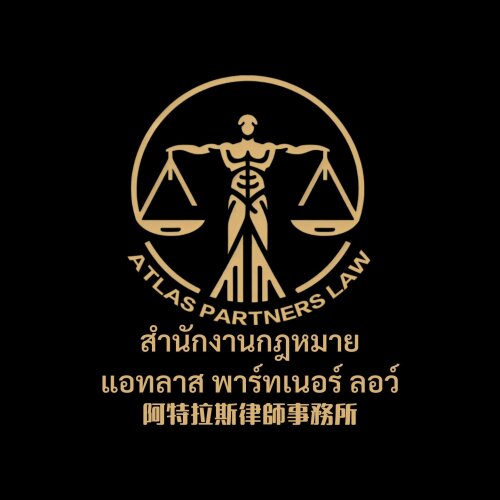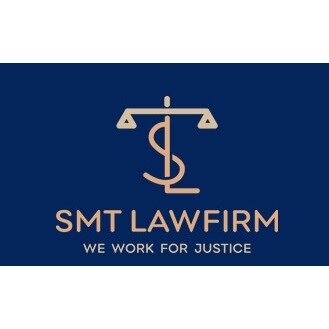ทนายความ คดียาเสพติด ที่ดีที่สุดใน เชียงใหม่
แบ่งปันความต้องการของคุณกับเรา รับการติดต่อจากสำนักงานกฎหมาย
ฟรี ใช้เวลา 2 นาที
รายชื่อทนายความที่ดีที่สุดใน เชียงใหม่, ประเทศไทย
1. เกี่ยวกับกฎหมายคดียาเสพติดในเชียงใหม่, ประเทศไทย
เชียงใหม่ปฏิบัติตามกฎหมายคดียาเสพติดของประเทศไทยทั้งหมด ซึ่งมีจุดมุ่งหมายควบคุม การครอบครอง การผลิต การจำหน่าย และการนำเข้ายาเสพติดอย่างเข้มงวด
โครงสร้างกฎหมายหลักมุ่งเน้นการลงโทษตามประเภทยาเสพติดและพฤติกรรมที่เกี่ยวข้อง เช่น การครอบครองเพื่อจำหน่าย หรือการผลิต โดยมีบทลงโทษตั้งแต่จำคุกและปรับไปจนถึงการริบทรัพย์สิน
ในเชียงใหม่ การบังคับใช้กระทำผ่านตำรวจภูธรภาคเหนือ สำนักงานอัยการ และศาลจังหวัด/ศาลอาญาที่ดูแลคดีเหล่านี้ ดังนั้นผู้ต้องหาจะได้รับสิทธิการต่อสู้และการยื่นคำร้องทางกฎหมายในระบบยุติธรรมไทย
2. ทำไมคุณอาจต้องการทนายความ
- ถูกจับข้อหาพกครอบครองยาเสพติดในเชียงใหม่และต้องทราบสิทธิ์ในขั้นตอนศาลชั้นต้น
- ถูกตั้งข้อหาจำหน่ายหรือส่งต่อยาเสพติด และต้องวางแผนปฏิบัติตามกระบวนการยุติธรรมอย่างถูกต้อง
- ถูกสืบสวนโดยเจ้าหน้าที่ตำรวจในพื้นที่จังหวัดเชียงใหม่ และต้องเตรียมพยานหลักฐานและคำเบิกความ
- ต้องยื่นประกันตัวหรือขอพักการลงโทษระหว่างพิจารณาคดี
- ต้องชี้แจงประเด็นข้อเท็จจริงที่อาจทำให้คดีมีโทษลดลงหรือยกฟ้อง
- สถานการณ์ครอบครัวหรือการงานได้รับผลกระทบจากคดียาเสพติด และต้องการคำแนะนำด้านการสื่อสารกับศาล
คำแนะนำสำคัญ เลือกทนายความหรือที่ปรึกษากฎหมายที่มีประสบการณ์ในคดีคดียาเสพติดในเชียงใหม่ เพราะทนายที่คุ้นเคยกับขั้นตอนศาลและกระบวนการสอบสวนจะช่วยลดความเสี่ยงทางกฎหมายได้มาก
3. ภาพรวมกฎหมายท้องถิ่น
กฎหมายที่ใช้งานในเชียงใหม่โดยทั่วไปเป็นไปตามกฎหมายกึ่งกลางของประเทศและบังคับใช้ในทุกจังหวัด รวมถึงเชียงใหม่ด้วย หากมีการเปลี่ยนแปลง จะประกาศผ่านราชกิจจานุเบกษา
- พระราชบัญญัติคุ้มครองยาเสพติดให้โทษ พ.ศ. 2522 (Narcotics Act) - กำหนดบทลงโทษสำหรับการครอบครอง การผลิต การจำหน่าย และการนำเข้ายาเสพติด โดยบังคับใช้ทั่วประเทศรวมทั้งเชียงใหม่
- พระราชบัญญัติควบคุมวัตถุออกฤทธิ์ต่อจิตประสาท พ.ศ. 2518 (Psychotropic Substances Act) - กำกับการครอบครองและการค้า วัตถุออกฤทธิ์ต่อจิตประสาท และสารควบคุมประเภทต่างๆ
หากมีการแก้ไขใดๆ จะถูกบันทึกในประกาศราชกิจจานุเบกษา ฉะนั้นผู้ต้องหาหรือผู้เกี่ยวข้องควรตรวจสอบแหล่งข้อมูลราชการล่าสุดเป็นระยะ
4. คำถามที่พบบ่อย
อะไรคือขั้นตอนหลักตั้งแต่ถูกจับจนถึงการพิจารณาคดียาเสพติดในเชียงใหม่?
ขั้นตอนหลักประกอบด้วยการควบคุมตัว การสอบสวนโดยพนักงานสอบสวน การแจ้งข้อกล่าวหา การประกันตัว และการพิจารณาคดีโดยศาล ผู้ต้องหมีสิทธิ์เลือกทนายความและขอใช้สิทธิทางกฎหมายตามกระบวนการยุติธรรม
อย่างไรจึงจะหาทนายความด้านคดียาเสพติดที่เชียงใหม่ได้?
ค้นหาทนายที่มีประสบการณ์คดียาเสพติดในจังหวัดเชียงใหม่ โดยดูประวัติการดำเนินคดี ความเข้าใจในรูปแบบการสืบสวน และความสามารถในการให้คำแนะนำเชิงกลยุทธ์ตั้งแต่ชั้นศาลแรก
เมื่อไหร่ควรโทรหาทนายเมื่อถูกควบคุมตัวในคดียาเสพติด?
โดยทันทีที่ถูกควบคุมตัวหรือถูกแจ้งข้อกล่าวหา เพื่อให้ทนายสามารถให้คำแนะนำเรื่องสิทธิ์ การร้องขอประกันตัว และการวางแผนการปฏิบัติตัวในสถานีควบคุมตัว
ที่ไหนสามารถยื่นคำร้องประกันตัวหรือปล่อยชั่วคราวในคดียาเสพติด?
คำร้องประกันตัวยื่นต่อศาลที่มีเขตอำนาจในจังหวัดเชียงใหม่ โดยทั่วไปประกอบด้วยเอกสารยืนยันสถานะการถูกกล่าวหา และเหตุผลประกอบการพิจารณา
ทำไมประกันตัวในคดียาเสพติดบางกรณีถึงถูกปฏิเสธ?
เหตุผลมักมาจากความเสี่ยงต่อการหลบหนี อันตรายต่อสาธารณะ หรือข้อเท็จจริงของคดีที่ชี้ชัดว่ผู้ต้องหมีโอกาสกระทำความผิดซ้ำ
สามารถยื่นอุทธรณ์หรือร้องขอการทบทวนคดีในเชียงใหม่ได้หรือไม่?
ได้ หากมีเหตุผลที่รอการพิจารณาใหม่ เช่น ความผิดพลาดทางกระบวนการ หรือหลักฐานใหม่ที่มีความสำคัญ การอุทธรณ์จะดำเนินการตามกฎหมายและระยะเวลาที่กำหนด
ควรเตรียมหลักฐานอะไรบ้างเมื่อถูกกล่าวหาคดียาเสพติดในเชียงใหม่?
เตรียมบันทึกผู้เห็นเหตุการณ์ พยานที่เกี่ยวข้อง เอกสารระบุตัวตน และหลักฐานพิสูจน์สถานที่ เวลา และพฤติกรรมที่เกี่ยวข้องกับข้อกล่าวหา
ความแตกต่างระหว่างคดีประเภท 1 กับประเภท 2 ในกฎหมายยาเสพติดคืออะไร?
ประเภท 1 มักครอบคลุมยาเสพติดที่มีอันตรายสูง ขณะที่ประเภท 2 มักเป็นสารที่มีการควบคุมแต่ความเสี่ยงต่ำกว่า ปรับโทษและข้อกำหนดในสัญญาแตกต่างกัน
ระยะเวลาประมาณใดในการดำเนินคดียาเสพติดในเชียงใหม่?
ระยะเวลาขึ้นกับความซับซ้อนของคดี ตั้งแต่การสืบสวน การฟ้องร้อง และการพิจารณาของศาล อาจใช้หลายเดือนถึงเป็นปีในบางกรณี
ฉันต้องจ่ายค่าใช้จ่ายในการจ้างทนายคดียาเสพติดเท่าไร?
ค่าใช้จ่ายขึ้นกับความซับซ้อนของคดีและประสบการณ์ของทนาย โดยทั่วไปมีค่าปรึกษาเริ่มต้นและค่าเรียกชันงานตามความเหมาะสม ซึ่งควรถามล่วงหน้า
ฉันต้องมีคุณสมบัติอะไรบ้างถึงจะเลือกทนายที่เหมาะสม?
ควรมีประสบการณ์คดียาเสพติดในจังหวัดเชียงใหม่ มีความรู้เรื่องขั้นตอนศาล และสามารถสื่อสารให้เข้าใจง่าย รวมถึงความสามารถในการวางแผนกลยุทธ์ทางกฎหมาย
รูปแบบการเปรียบเทียบทนายความต่างกันอย่างไร?
เปรียบเทียบจากประสบการณ์ในคดีคล้ายกัน ระยะเวลาความสำเร็จ ค่าใช้จ่าย และโอกาสในการลดโทษหรือยกฟ้อง
การฟื้นฟูผู้ติดยาเสพติดกับการดำเนินคดีต่างกันอย่างไร?
การฟื้นฟูมุ่งเน้นสุขภาพและการบำบัด ส่วนการดำเนินคดีมุ่งหาความรับผิดชอบและบทลงโทษ การแยกแยะนี้สำคัญในการวางแผนแนวทางทางกฎหมาย
5. ทรัพยากรเพิ่มเติม
- สำนักงานสำนักงานนโยบายและควบคุมยาเสพติดระหว่างประเทศ (ONCB) - https://www.oncb.go.th
- กระทรวงยุติธรรม - https://www.justice.go.th
- ราชกิจจานุเบกษา - https://www.ratchakitcha.soc.go.th
6. ขั้นตอนถัดไป
- รวบรวมข้อมูลคดีเบื้องต้น เช่น เวลา สถานที่ ผู้เกี่ยวข้อง และข้อกล่าวหา
- ค้นหาทนายความด้านคดียาเสพติดที่เชี่ยวชาญในเชียงใหม่
- นัดปรึกษากับทนายเพื่อประเมินสถานะคดี และค่าใช้จ่ายโดยประมาณ
- แจ้งสิทธิ์และขอคำแนะนำเรื่องประกันตัวหรือตามกระบวนการทางศาล
- เตรียมหลักฐาน และทำแผนการต่อสู้คดีร่วมกับทนาย
- ยื่นคำร้องหรืออุทธรณ์ถ้าจำเป็น ตามกรอบเวลาทางกฎหมาย
- ติดตามสถานะคดีอย่างสม่ำเสมอจนกว่าจะมีคำพิพากษา
อ้างอิงและแหล่งข้อมูลทางการ
- Office of the Narcotics Control Board (ONCB) - https://www.oncb.go.th
- กระทรวงยุติธรรม - https://www.justice.go.th
- ราชกิจจานุเบกษา - https://www.ratchakitcha.soc.go.th
Lawzana ช่วยคุณค้นหาทนายความและสำนักงานกฎหมายที่ดีที่สุด ใน เชียงใหม่ ผ่านรายชื่อผู้เชี่ยวชาญด้านกฎหมายที่มีคุณสมบัติเหมาะสมที่คัดสรรและตรวจสอบล่วงหน้า แพลตฟอร์มของเรานำเสนอการจัดอันดับและโปรไฟล์โดยละเอียดของทนายความและสำนักงานกฎหมาย ช่วยให้คุณเปรียบเทียบตามสาขากฎหมาย รวมถึง คดียาเสพติด ประสบการณ์ และความคิดเห็นของลูกค้า
แต่ละโปรไฟล์ประกอบด้วยคำอธิบายเกี่ยวกับสาขากฎหมายของสำนักงาน รีวิวจากลูกค้า สมาชิกในทีมและหุ้นส่วน ปีที่ก่อตั้ง ภาษาที่พูด ที่ตั้งสำนักงาน ข้อมูลการติดต่อ การมีตัวตนบนโซเชียลมีเดีย และบทความหรือแหล่งข้อมูลที่เผยแพร่ สำนักงานส่วนใหญ่บนแพลตฟอร์มของเราพูดภาษาอังกฤษและมีประสบการณ์ทั้งในเรื่องกฎหมายท้องถิ่นและระหว่างประเทศ
ขอใบเสนอราคาจากสำนักงานกฎหมายชั้นนำ ใน เชียงใหม่, ประเทศไทย — รวดเร็ว ปลอดภัย และไม่ยุ่งยาก
ข้อจำกัดความรับผิดชอบ:
ข้อมูลที่ให้ไว้ในหน้านี้มีวัตถุประสงค์เพื่อเป็นข้อมูลทั่วไปเท่านั้นและไม่ถือเป็นคำแนะนำทางกฎหมาย แม้ว่าเราจะพยายามตรวจสอบความถูกต้องและความเกี่ยวข้องของเนื้อหา แต่ข้อมูลทางกฎหมายอาจเปลี่ยนแปลงได้ตามกาลเวลา และการตีความกฎหมายอาจแตกต่างกันไป คุณควรปรึกษาผู้เชี่ยวชาญด้านกฎหมายที่มีคุณสมบัติเหมาะสมเพื่อขอคำแนะนำเฉพาะสำหรับสถานการณ์ของคุณเสมอ
เราปฏิเสธความรับผิดทั้งหมดสำหรับการกระทำที่ทำหรือไม่ทำตามเนื้อหาในหน้านี้ หากคุณเชื่อว่าข้อมูลใดไม่ถูกต้องหรือล้าสมัย โปรด contact us และเราจะตรวจสอบและแก้ไขตามความเหมาะสม













